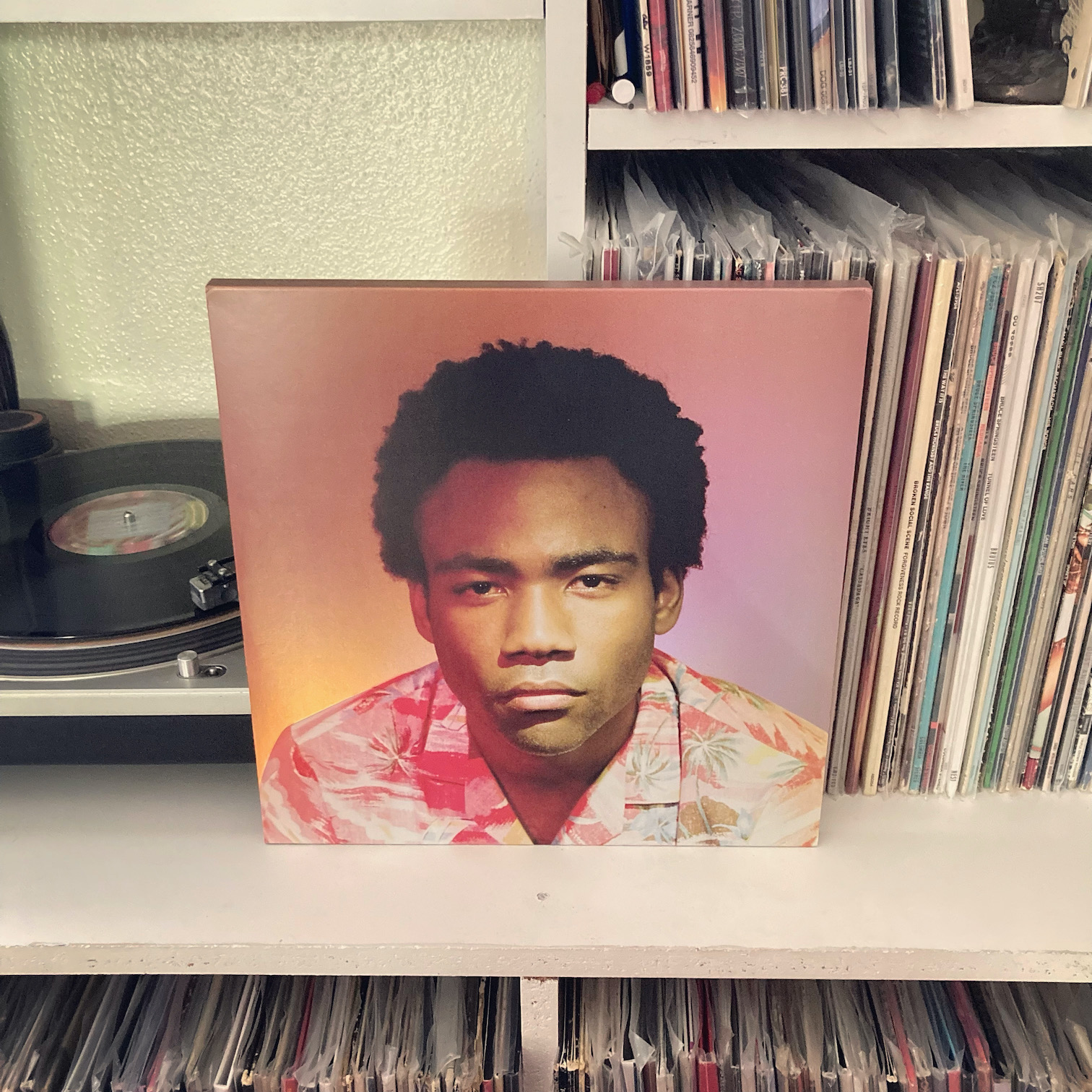
2013 to 2014 was a frustrating period for Community fans. Despite a number of behind the scenes changes, there was a notable absence of Troy Barnes, the lovable idiot played by Donald Glover. He only appeared in five of the season’s thirteen episodes, then announced that he was leaving the show to focus on his music career.
At the time, it felt ill-conceived. He had already released some music under the name Childish Gambino at the time, and while it was fine for an actor’s side gig, it definitely didn’t seem like the sort of thing that had strong enough legs to build a career on.
Then Because the Internet dropped, and we realized what fools we had been.
Read more at ayearofvinyl.com #childishgambino #hiphop #r&b #rap #vinyl
After the absolute zeitgeist of “This Is America,” it feels strange to remember a time when Donald Glover was considered just a comedian (remember the campaign that he should play Spider-man?). He’s since become a member of an elite club of performers who have hosted SNL while also performing as the musical guest (when after announcing himself as Donald Glover, he announced “Childish Gambino is here”).
For my own part, I took notice of Childish Gambino when the video for “Sweatpants” started making the rounds on social media. While Glover had always been a great writer (some of the best bits on 30 Rock were his) and sharp-witted comedian, it hadn’t occurred to me that that skillset could translate into hip hop. But “Sweatpants” proved that he had the cleverness, silver tongue, and passion to be an MC worth paying attention to. I immediately needed more, and followed YouTube’s suggestion to the catchy love song “3005,” which immediately follows “Sweatpants” on the album.
But those two tracks are just a small vignette in the context of Because the Internet, which is a sprawling, genre-hopping, hyperactive work of art so ambitious it borders on narcissistic. This edition even includes a 72-page screenplay that turns the album into a sort of soundtrack. Seriously, this is the kind of monumental statement that requires an almost delusional amount of self-importance to conceive of, let alone pull off.
And let’s be clear: he pulls it off. The album hops from track to track, scene to scene, mood to mood with mercurial agility. “No Exit” is particularly athletic, shifting from somber R&B to dark, electro-informed hip hop on a dime, sometimes even fusing the two together. As an MC, Gambino is just as chameleonic, shifting from internet-era apathy to earnest sentimentality like he’s scrolling between them like Tweets. The fact that he’s able to work both the menacing fury of “Crawl” and the heartbreaking tenderness of “Flight of the Navigator” into the same album with the same depth of conviction points to what a feat this album is.
What’s perhaps more impressive is that Glover is the primary producer on the album, co-writing much of the music with Community composer Ludwig Göransson. With all of the stylistic shifts, you’d almost expect each track to bear the fingerprints of numerous unrelated producers. And while there is a handful of outside artists credited with production duties (notably Thundercat), Glover largely brought his monumental vision to life on his own. It’s one thing to rap and sing as well as he performs both here, but to provide the beats as well is a true triple threat. To quote his musical SNL opening monologue, “[he] really can do anything.”
True, in the years that followed, Childish Gambino hasn’t been able to deliver anything that has approached the brilliance of Because the Internet. But this is the sort of singular monolith that doesn’t need a follow-up. Had Glover pulled back after this record and said his musical career was a brief detour and went back to writing and acting, it likely would have been enough to cement a legacy. But if “This Is America” is any indication, there’s still plenty of greatness pent up inside him.